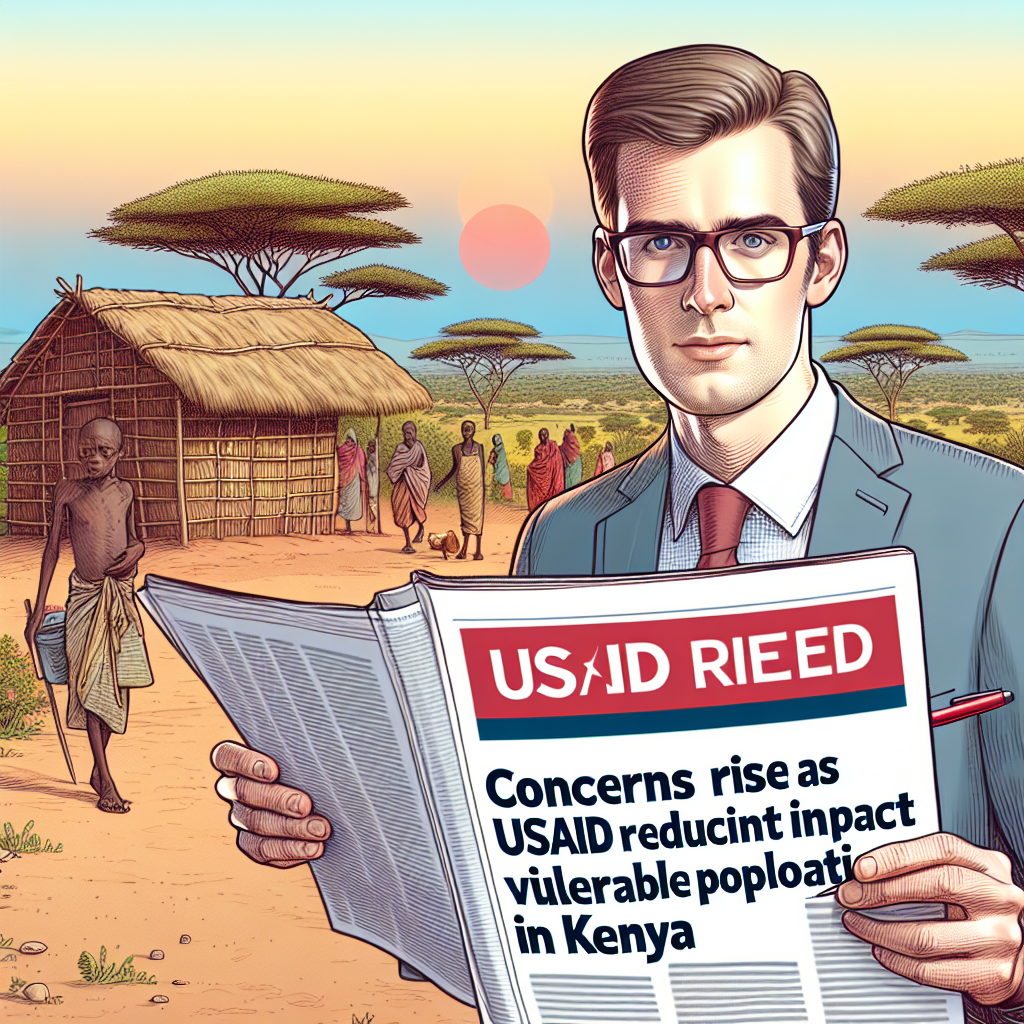“Concerns Rise as USAID Reductions Impact Vulnerable Populations in Kenya”
Concerns Rise as USAID Reductions Impact Vulnerable Populations in Kenya
Overview
Recent reductions in funding from the United States Agency for International Development (USAID) are raising significant concerns about the welfare of vulnerable populations in Kenya. These cuts threaten to undermine critical programs that support health, education, and economic development in the region.
Key Areas Affected
- Health Services: Reduced funding is expected to impact essential health services, including HIV/AIDS treatment and maternal health care, potentially leading to increased health risks.
- Education Programs: Educational initiatives, particularly those aimed at improving literacy and access to education for girls, face potential setbacks.
- Economic Development: Programs designed to boost economic opportunities and reduce poverty may experience significant slowdowns, affecting local communities’ livelihoods.
Community Concerns
Local communities and organizations express deep concern over the potential long-term effects of these funding cuts. There is a fear that the progress made in recent years could be reversed, exacerbating existing challenges and vulnerabilities.
Government and NGO Response
The Kenyan government, along with various non-governmental organizations (NGOs), is actively seeking alternative funding sources to mitigate the impact. Collaborative efforts are underway to ensure that essential services continue to reach those in need.
Conclusion
The reduction in USAID funding poses a significant challenge to vulnerable populations in Kenya, threatening health, education, and economic stability. While efforts are being made to address these challenges, the situation underscores the critical need for sustained international support to maintain and build upon the progress achieved in recent years.




































